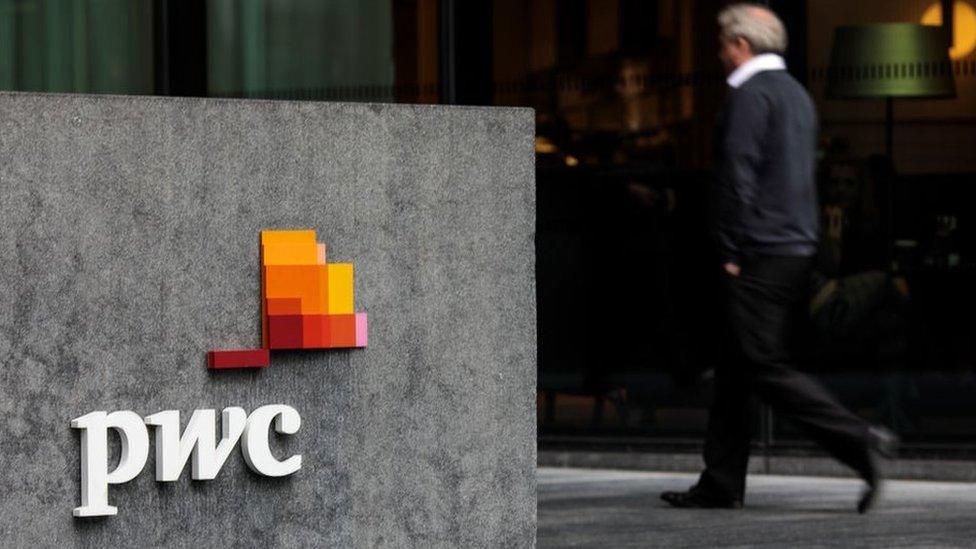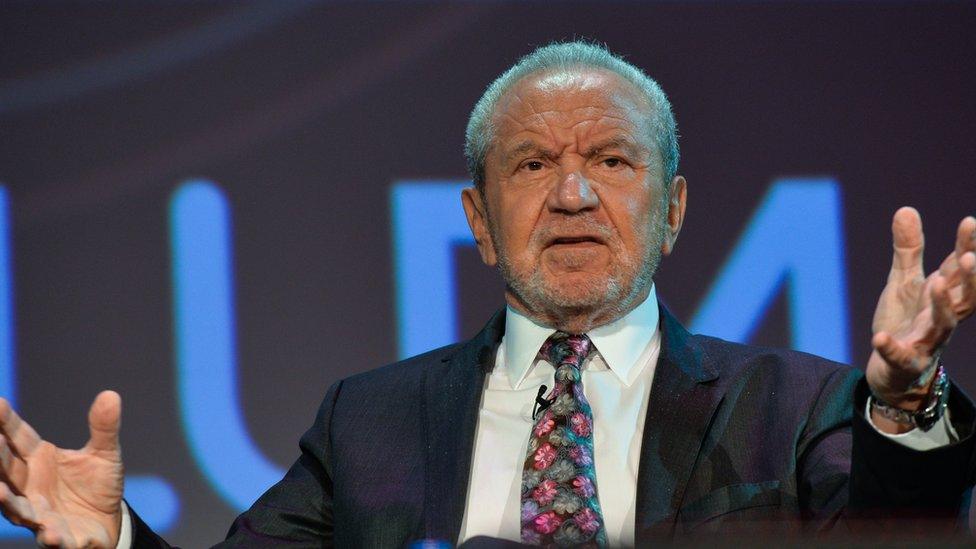PwC says graduates do not need a 2:1 degree to work at the firm
- Published

PwC, one of the UK's largest graduate employers, has said it will no longer just look for new recruits with a first or 2:1 degree.
The accountancy firm said accepting applicants with lower second class degrees would help increase the socio-economic diversity of its workforce.
"Talent and potential is determined by more than academic grades," PwC said.
Around 14% of graduates received a lower second class degree, or 2:2, last year.
UK universities award degrees that are classified in four categories: a first, an upper second (2:1), a lower second (2:2), and third class honours.
Typically professional services firms, including large city, accountancy and law firms, have required students to have a 2:1 or above.

Excluded with a 2:2

When Stephanie Ahemor, 32, graduated with a 2:2 she struggled.
"It was definitely harder to find a job right out of uni, as my grades meant I was automatically excluded from the majority of graduate programmes," she told the BBC.
"I come from a working class family so… I didn't have a lot of connections."
She took on a lot of unpaid internships and eventually got a job with the Home Office. But she wishes firms had accepted her 2:2 degree a decade ago.
"If the big four had considered this when I graduated I definitely would have applied to PwC and the others but I wasn't able to at that time."

PwC said it was removing the requirement for all its graduate roles, internships and placements in order to open up opportunities for more people and improve social mobility.
"Whilst academic achievement has its place, for far too many students there are other factors that influence results," said Ian Elliott, chief people officer at PwC.
"This move isn't primarily about attracting more applications but opening our roles to students from a broader range of backgrounds," he added.
In the past decade, universities have awarded a higher proportion of first class degrees and fewer 2:2 degrees, while the proportion of students receiving a 2:1 has remained fairly flat.
The big four accountancy firms - PwC, KPMG, Deloitte and EY - began to loosen the criteria for their traditional graduate recruitment programmes more than six years ago. EY and PwC both said then they would move away from the reliance on academic qualifications and put more emphasis on their own assessments.
Since then, disruption to schooling and universities during the Covid pandemic has focused attention on the extra challenges faced by students from disadvantaged backgrounds.
A-level grades were inflated in 2020 and 2021 as a result of measures to help combat the disruption, which had a bigger impact in less affluent communities. But this year's A-level results, due out later this week, are expected to move some of the way back towards pre-pandemic standards, resulting in fewer achieving the top grades and fears that disadvantaged students will miss out on university places.
At degree level, students from disadvantaged backgrounds are less likely to gain the top grades, said Universities UK, which represents the sector.
Recent research from the Institute for Fiscal Studies, external suggests that what class of degree you have makes a big difference to earning potential five years down the line. It said a 2:2 degree was associated with a 6.9% lower earnings for women and 10.9% lower earnings for men, compared with a 2:1.
'Snobbery'
But PwC's motivation may not be purely about diversifying its intake, according to Gary Darlington, associate director at global recruitment firm Robert Walters.
He said high demand for staff following a recruitment lull in the pandemic, meant many firms were having to adapt their wish lists.
"We do have clients who are quite particular, they must have a [candidate with a] 2:1 degree. We have other clients where it goes further. It has to be from a redbrick university... It's a snobby thing.
"[But] I've found in more recent times companies have become more flexible."
KPMG last year became one of the first large UK businesses to set a target for the number of employees it has from working class backgrounds.
The firm said that while it expects student applicants to be "working toward" a 2:1 degree, it assessed candidates on a case-by-case basis and would consider those with lower second class degrees.
Deloitte uses contextualised academic data, taking into account he economic and personal background of an applicant.
This year PwC has recruited around 1,200 graduates and approximately 15% of them are from lower socio-economic backgrounds.
Around 39% of the UK workforce are working class, according to data from the Social Mobility Commission, external.

Do you have a 2:2 degree? Has it made it harder for you to find work? How much do qualifications matter? We'd like to hear your experiences. Email haveyoursay@bbc.co.uk, external.
Please include a contact number if you are willing to speak to a BBC journalist. You can also get in touch in the following ways:
WhatsApp: +44 7756 165803, external
Tweet: @BBC_HaveYourSay, external
Or fill out the form below
Please read our terms & conditions and privacy policy
If you are reading this page and can't see the form you will need to visit the mobile version of the BBC website to submit your question or comment or you can email us at HaveYourSay@bbc.co.uk, external. Please include your name, age and location with any submission.

Related topics
- Published26 June 2022

- Published10 May 2022

- Published9 September 2021
